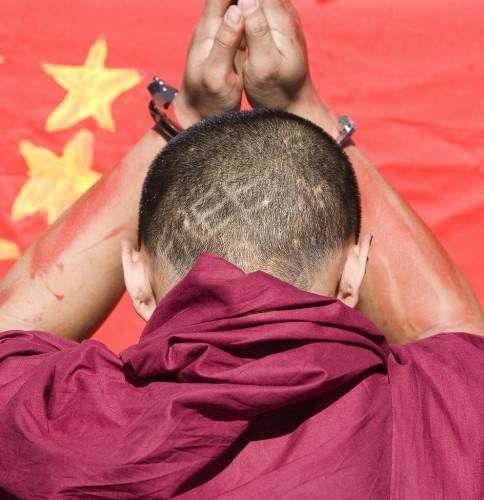U.S.A. With the recent media attention on Snowden, a wanted NSA leaker, countries that refuse to cooperate with the United States on capturing the wanted “criminal” have been spotlighted as nations that are untrustworthy foes, rather than comrades. One of the most harshly accused has been China.
U.S. relations with China have always been tentative – both countries started with a shaky foundation and began to build diplomatic ties from there. Beginning with the fall of China to communists in 1949, the two countries’ contrasting governmental ideologies have been the fence that prevents both from becoming allies. The continuation of China’s human rights abuses have further injured an already tense relationship.
The two still have tried for better ties. Presidents Barack Obama and Xi Jinping recently met at the Annenberg estate to schedule a future of bilateral relations, in what the tabloids have deemed a “sunny summit.” Xi has opted for a future with America with “no conflict and no confrontation”, “mutual respect”, and “cooperation toward winwin results.”
With China now possessing the world’s second largest economy, the two countries are dependent on each other economically. The two countries are each other’s second largest trading partner, with trade amounting up to $484.7 billion in 2012.
Unfortunately, the economic relations have done little to stabilize an actual friendship. In the recent years, the U.S. has been accusing China of cyberespionage attacks, claiming that China has been stealing innovations from U.S. companies. As Snowden revealed, the U.S. has not remained blameless – on the contrary, the leaks have pointed to the U.S. as the “biggest villain of our age,” attacking China via cyberspace repetitively.
And in the past year, the U.S. has done little to diplomatically support the red kingdom in the dispute over the territory in the South China Sea, the U.S. ignored their supposed “ally” and backed the Japanese. Likewise, the U.S. has refused to offer support to China in the dispute over the Phillipines. Furthermore, an article published by the Tribune on July 1st reports that the U.S. has been supporting terrorist attacks in XinJiang.
The situation is clear- on paper, the two countries are allies. In reality, the two countries do not trust.
As Aaron L. Friedberg, politics professor in Princeton puts, “Deep seated patterns of power politics are thus driving the United States and China toward mistrust and competition, if not necessarily toward open conflict. But this is not all there is to the story.”
He continues, “In contrast to what some realists claim, ideology matters at least as much as power in determining the course of relations among nations. The fact that America is a liberal democracy while China remains under authoritarian rule is a significant additional impetus for rivalry, an obstacle to stable, cooperative relations, and a source of mutual hostility and mistrust in its own right.”
While there may be some rumors of a slowly democratizing China, or a transforming capitalist economy, it is not likely that China will fall into Western ideals in the near future.
As Mark Thomas, Economics Professor at University of Oregon states, ” Americans and Europeans blithely assume that China will become more like them as its economy develops and its population gets richer. This is a mirage, Jacques says. The Chinese and their government are wedded to a different conception of society and polity: community-based rather than individualist, statecentric rather than liberal, authoritarian rather than democratic. China has 2,000 years of history as a distinct civilization from which to draw strength. It will not simply fold under Western values and institutions.”
The solution to the problem is hazy. Whether the countries decide to truly trust one another is a complicated situation with no clear answer. But one thing is clear: the two heavily depend on each other economically. Whether they are friends or foes, cutting ties is not a feasible option.
As a Chinese American, I personally feel the effects of the hostility between the two countries. It is interesting how much more African Americans accepted in the present than in the past, Barack Obama is proof of how a changing and accepting society. However, because of the increased tensions with China, it seems to me that an Asian American isn’t likely to be trusted to hold an powerful political position. Nor is the negative propaganda beneficial for the patriotism of the American born Chinese.

